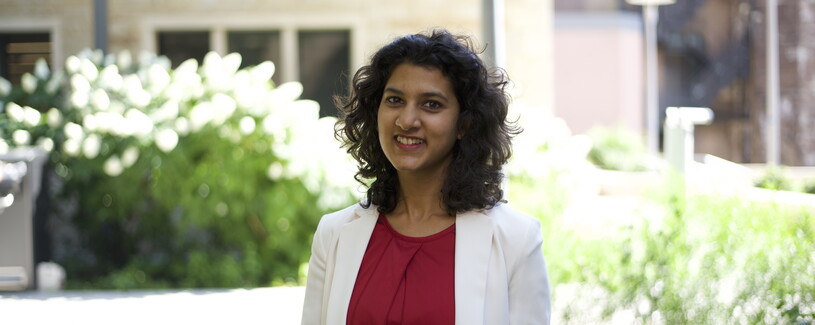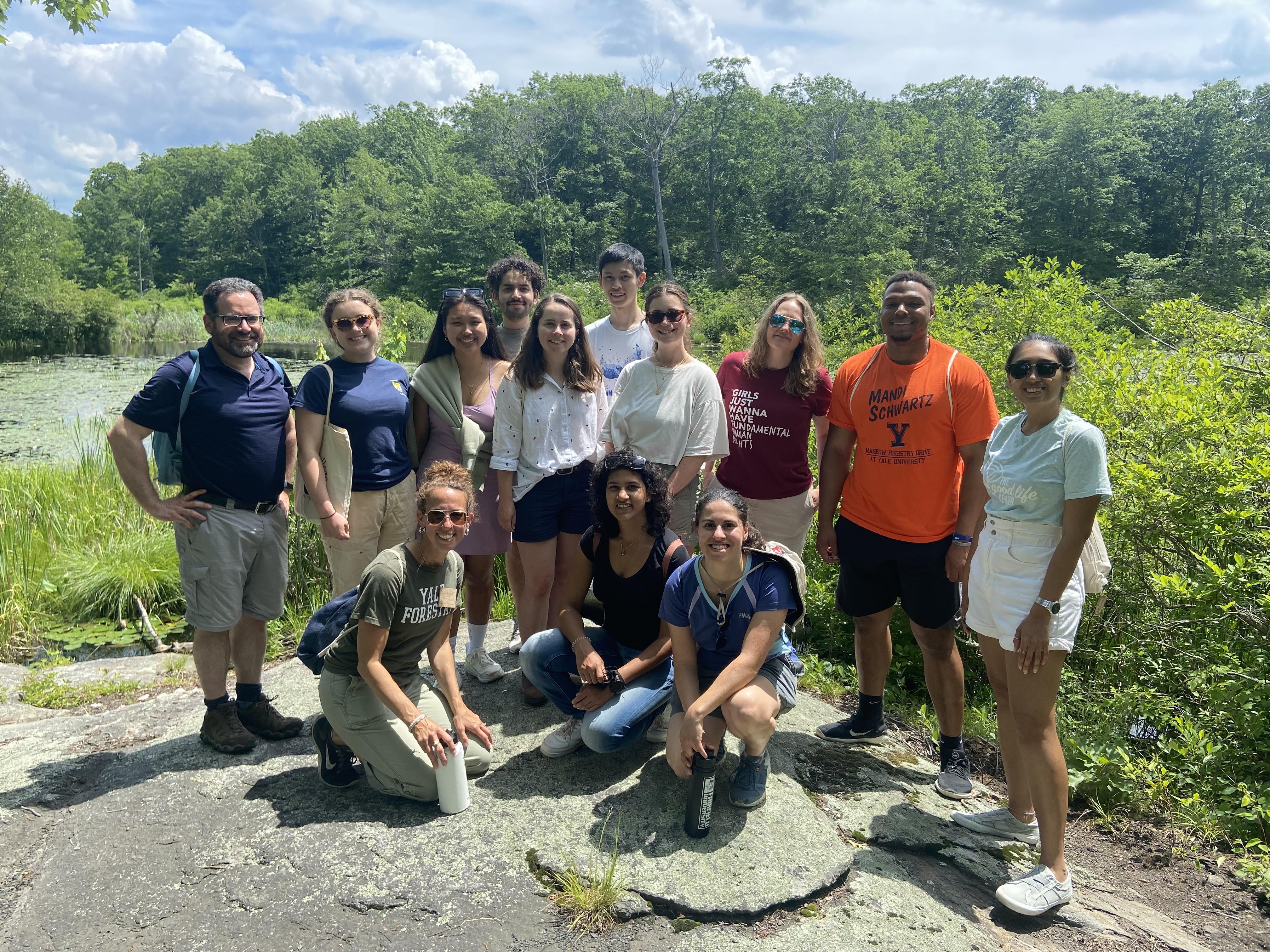Increasing Clean Energy Access Through Policy: Meet Pratima Garg
A member of CBEY's Planetary Solutions in Clean Energy program

Planetary Solutions in Clean Energy - Internship and Fellowship Program (PSiCE) is a just-launched program that offers summer research and internship opportunities to students at Yale who are committed to advancing and pursuing a career in the clean energy field. To celebrate the launch of PSiCE we’re speaking with students in the initial cohort to learn about their inspiration, goals, and plans through the program.
Policy is the name of the game for Pratima Garg.
A first-year candidate pursuing Public Policy with a focus on clean energy at Yale’s Jackson Institute, Pratima’s interest through the PSiCE program is clear: How can policy be leveraged to create and support solutions for clean energy?
Prior to joining Yale, Pratima worked with a Member of Parliament and later with the government to help implement state-wide programs in India. Additionally, Pratima was a founding team member of Rocket Learning, an ed-tech startup focused on early childhood education in India.
A lover of nature and hiking, the drastic changes she saw to the environment that accompanied development in her home country, especially hydro projects, led Pratima to take a closer look at the impacts of how energy is produced. She wanted to delve deeper into how energy access can be improved while protecting the environment.
These combined experiences led her to a position in CBEY’s inaugural Planetary Solutions in Clean Energy (PSiCE) cohort to pursue her interest in exploring how innovation in the private sector can be combined with the scale of the government to move towards a cleaner future.
“In India and growing developing countries across the world, energy access is critical. Access to energy is improving and hence the demand for energy will only increase. Still annual per capita consumption stands at about 1.2 kWh in India and almost half of the people in sub-Saharan Africa lack access to energy. This is in sharp contrast to the US per capita consumption of 12 kWh.
As across the world, currently, most of them rely on conventional sources of energy that release huge amounts of carbon emissions inducing climate change. Further, it adversely affects people belonging to vulnerable groups who reside near those highly polluting plants.”
“Given this, it is essential to increase access and simultaneously move towards clean energy at the systemic level to limit carbon emissions from conventional power generation.”
Having worked with diverse stakeholders in both the public and private sectors in her journey till now, Pratima wants to build on her insights by applying them to increasing access to renewable energy.
“The government can really benefit from the targeted solutions the private sector comes up with. There are companies that specialize in energy audits, there are others that are good with retrofitting, and producing devices such as heat pumps. That's where the private sector can come in...technology and the financing, these are the two levers where the private sector can really pitch in.”
Through the PSiCE program, Pratima will be working with the City of Ithaca on their citywide building decarbonization initiative. She will focus on helping create a fund for low-income housing in the city to help them fuel-switch from natural gas, undertake efficiency measures and ensure electricity is clean by adopting solar. And as expected, policy will form the framework to expand access and affordability of clean energy in the city.
“I hope to combine the technical aspects of energy efficiency and electrification with incentives and policy to contribute towards Ithaca's ambitious vision of 100% decarbonized buildings. It is an invaluable opportunity to observe and learn how a city can combine finance, policy, and innovation to achieve change at scale.”
-Pratima Garg (MPP '23)
The City of Ithaca is one of PSiCE’s eight incredible 2022 partner/host organizations, working with students to tackle energy equity from a myriad of angles.
“Working with the CBEY team, it is incredible to see so many crossovers with what other organizations and fellows are doing - I am looking at financing and implementing efficiency measures from the standpoint of the city and bringing private companies on board to fill in the gaps. Some people are working with those companies and it is fascinating and helpful to understand how their business model works, their definition of impact, and how they raise funds to make it sustainable.”
Pratima thinks Ithaca is at the forefront of climate action as it has “unboxed its thinking” and she wants to contribute to further turn existing constraints into opportunities to move clean energy forward at the systemic level.
CBEY is proud to welcome Pratima as an inaugural cohort member of the 2022 Planetary Solutions in Clean Energy (PSiCE) program.
